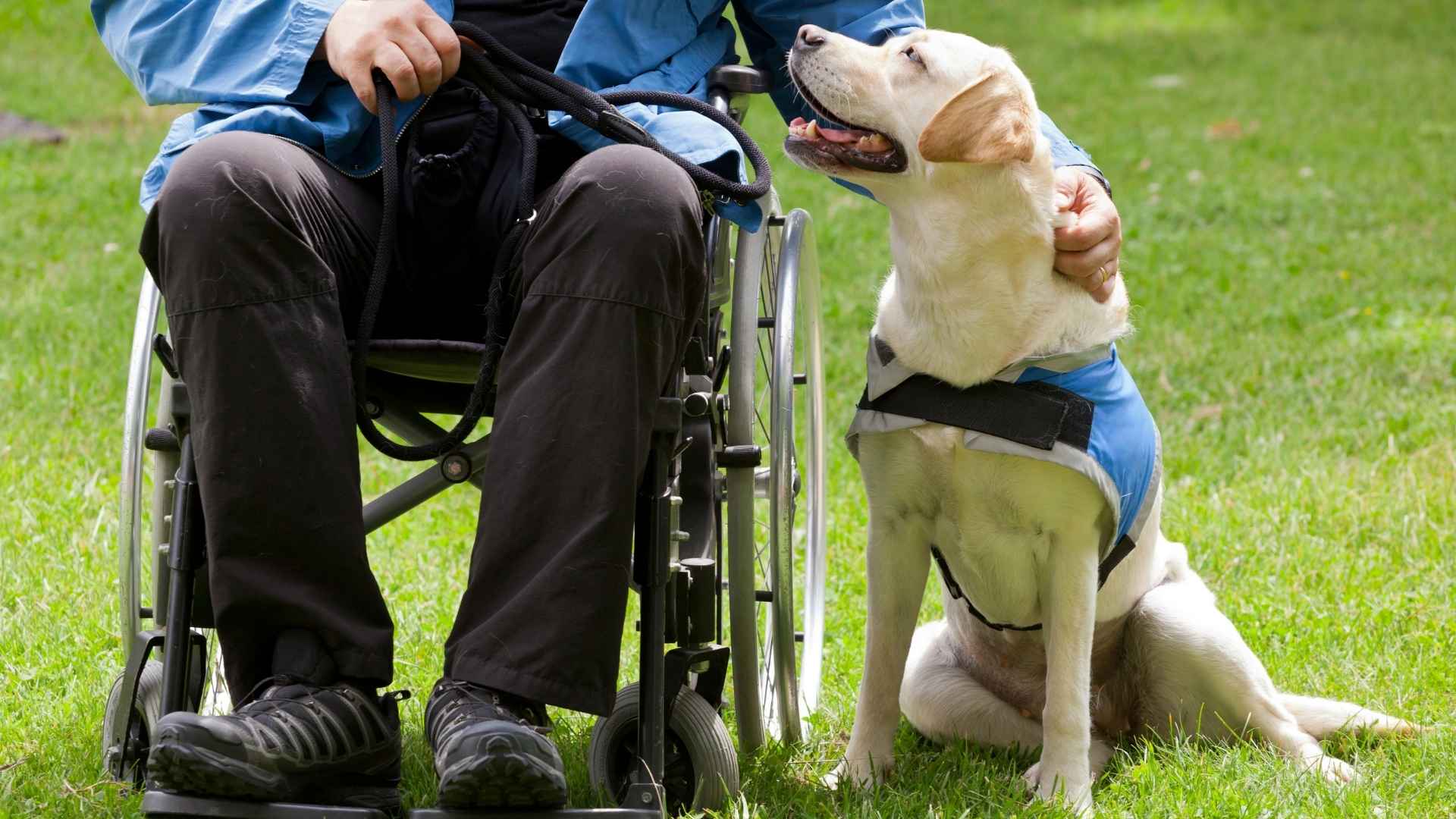The happiest dogs often make the best public servants. Their wagging tails, bright eyes, and joyful energy are not distractions but powerful tools for connection.
A cheerful dog eases tension in a hospital hallway, calms a nervous traveler, or brings comfort to a classroom full of children. Not every breed is equipped for this task. Some may excel in protection or sport, but public service requires an innate ability to spread positivity.
The service animals best suited for these roles meet challenges with resilience while radiating joy that invites trust. Their happiness becomes contagious, helping people feel safer, calmer, and more open to others.
For organizations built on service, these qualities are invaluable. This article explores the happiest dog breeds that consistently thrive in public service organizations.
Happiest Dog Breeds For Public Service Organizations
1. Labrador Retriever
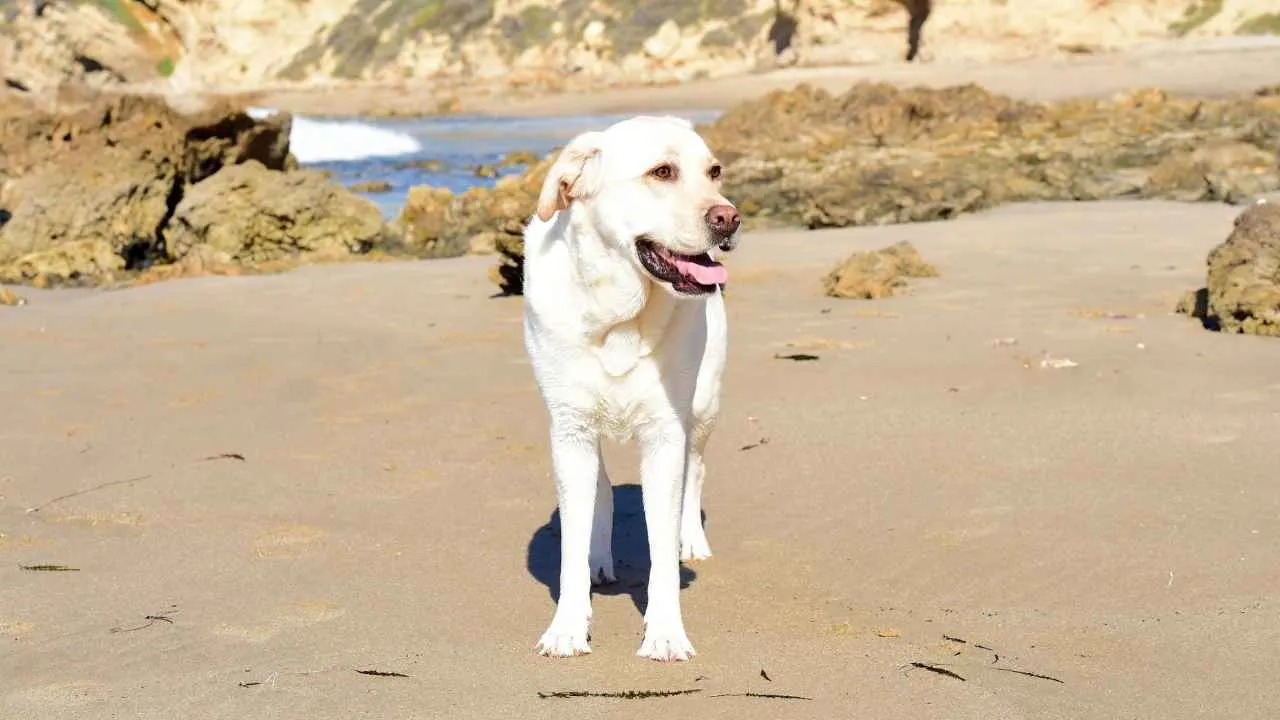
Labradors are widely recognized as dependable partners in public service, particularly in guiding the visually impaired. Their steady temperament helps them stay calm in crowded areas or unpredictable environments. This makes them reliable for long hours of structured work.
Versatility Across Roles
Beyond guide work, they assist with mobility support, PTSD therapy, and even search-and-rescue operations, as mentioned by Assistance Dogs International.
Their adaptability as a best service dog breed allows them to transition into multiple service roles successfully. In every complex task, they maintain focus while still keeping a friendly demeanor.
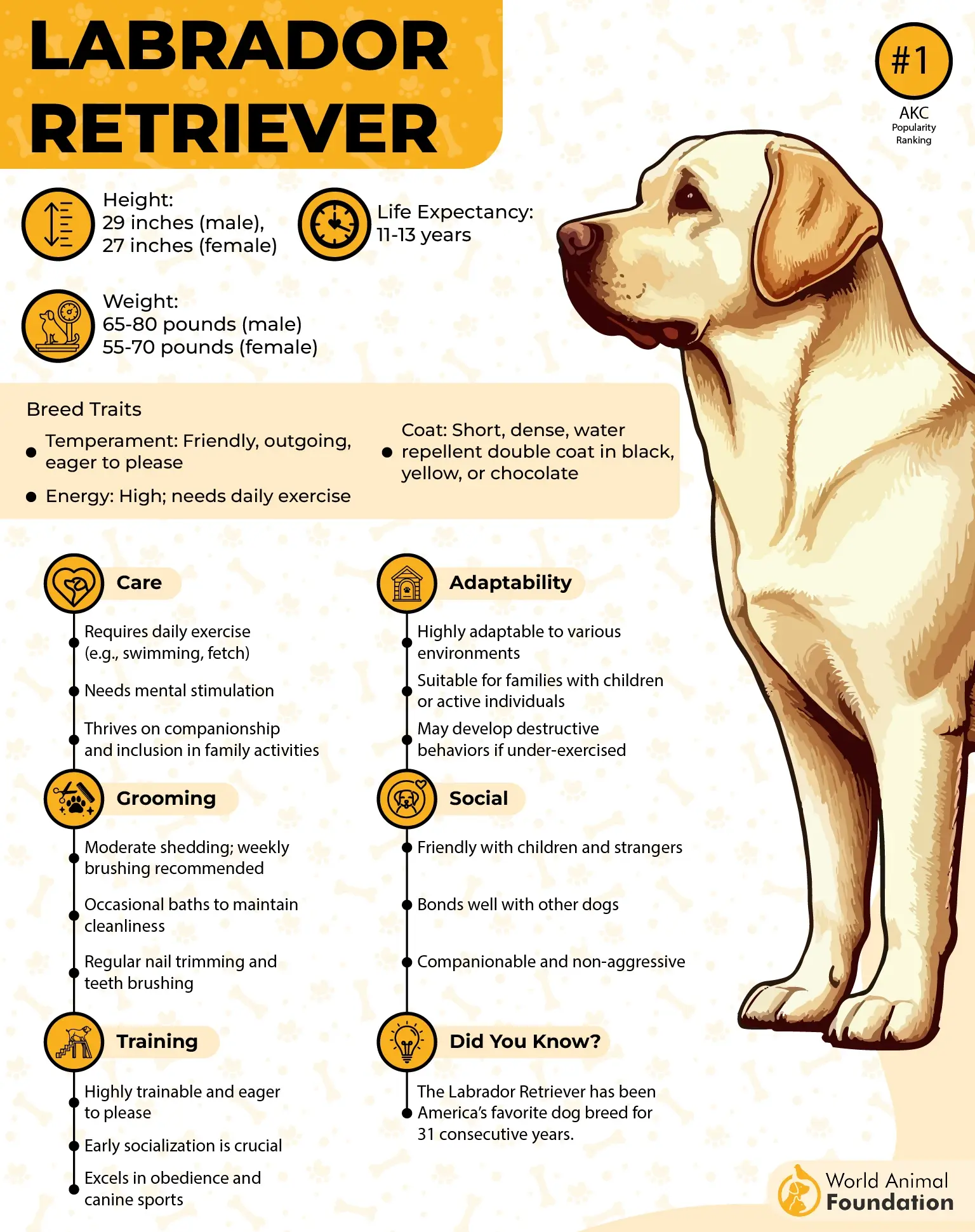
Why Organizations Prefer Them
Public service groups often choose Labradors because of their trainability and eagerness to bond with handlers. Some qualities that make them highly valued include:
Strong problem-solving instincts
High energy for daily work routines or physical assistance
Gentle, people-focused behavior
Emotional Balance in Work
These dogs manage high-stress settings with confidence, offering reassurance through their presence. Their ability to remain cheerful while performing demanding duties boosts morale for both handlers and those they assist. Few breeds combine emotional steadiness with physical capability this effectively.
2. Poodle
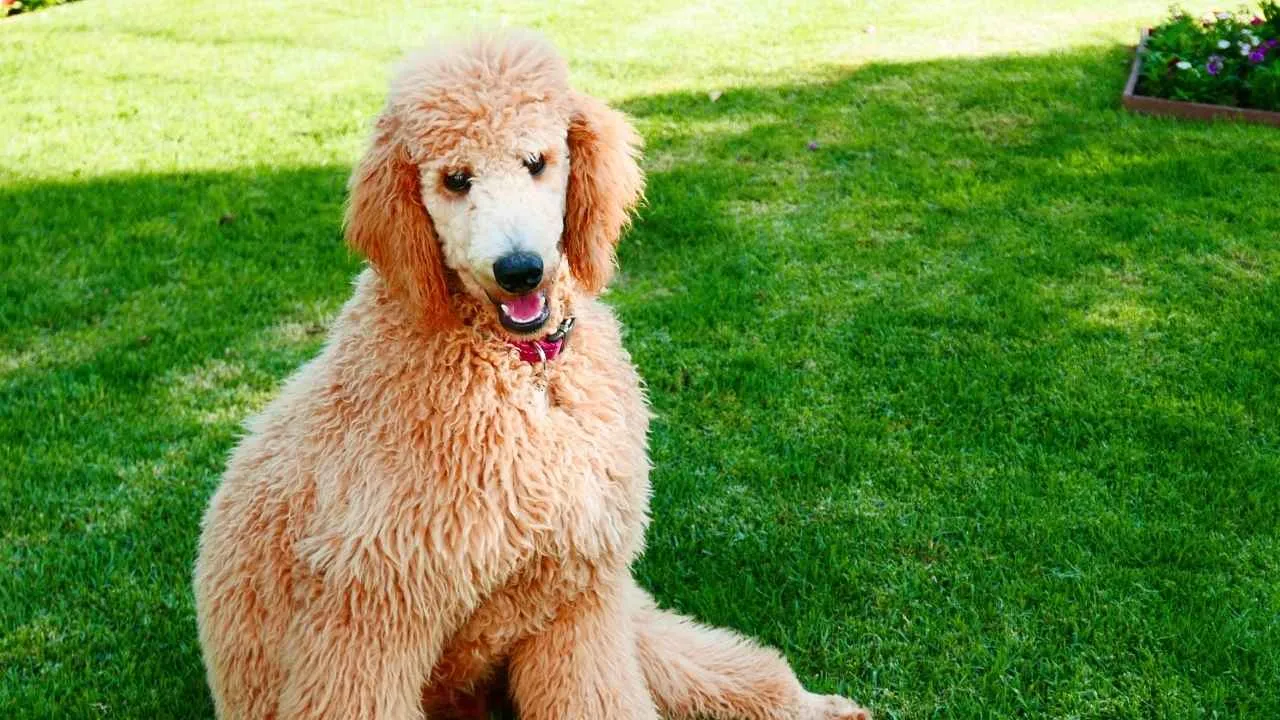
Poodles adjust quickly to different environments, making them suitable for service roles in hospitals, schools, and care facilities. Their eagerness to engage with people helps them reduce stress levels in public spaces. This adaptable temperament is why they often thrive in busy organizations.
Hearing Assistance Skills
Ultra-smart Poodles can excel as hearing dogs, alerting individuals with hearing loss to alarms, phones, or doorbells. They are trained to respond with gentle nudges or paw taps, ensuring their handlers stay aware of important sounds. Such consistency has made them valuable for everyday safety.
Suitability Across Sizes
Both miniature and toy Poodles can succeed in service roles when a smaller companion is preferred. Their manageable size makes them easier to accommodate in offices, classrooms, or crowded public settings. Despite their small size, they maintain the same intelligence and trainability as larger Poodles.
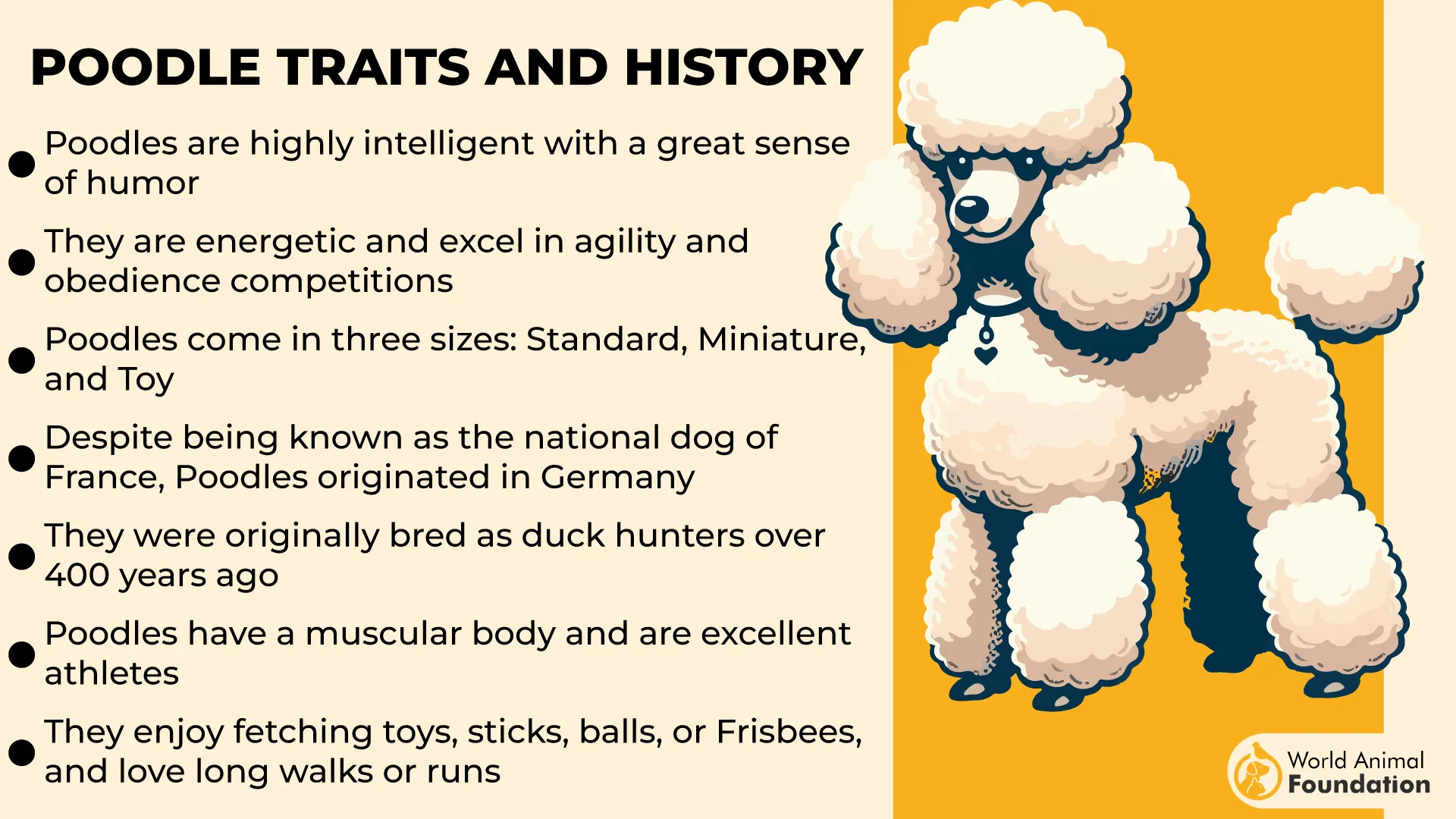
Health-Friendly Companions
Another trait that makes them appealing to public service organizations is their hypoallergenic coat. This feature lowers the risk of triggering allergies in workplaces or schools. As a result, Poodles can serve without causing discomfort to staff or community members.
3. Bernese Mountain Dog
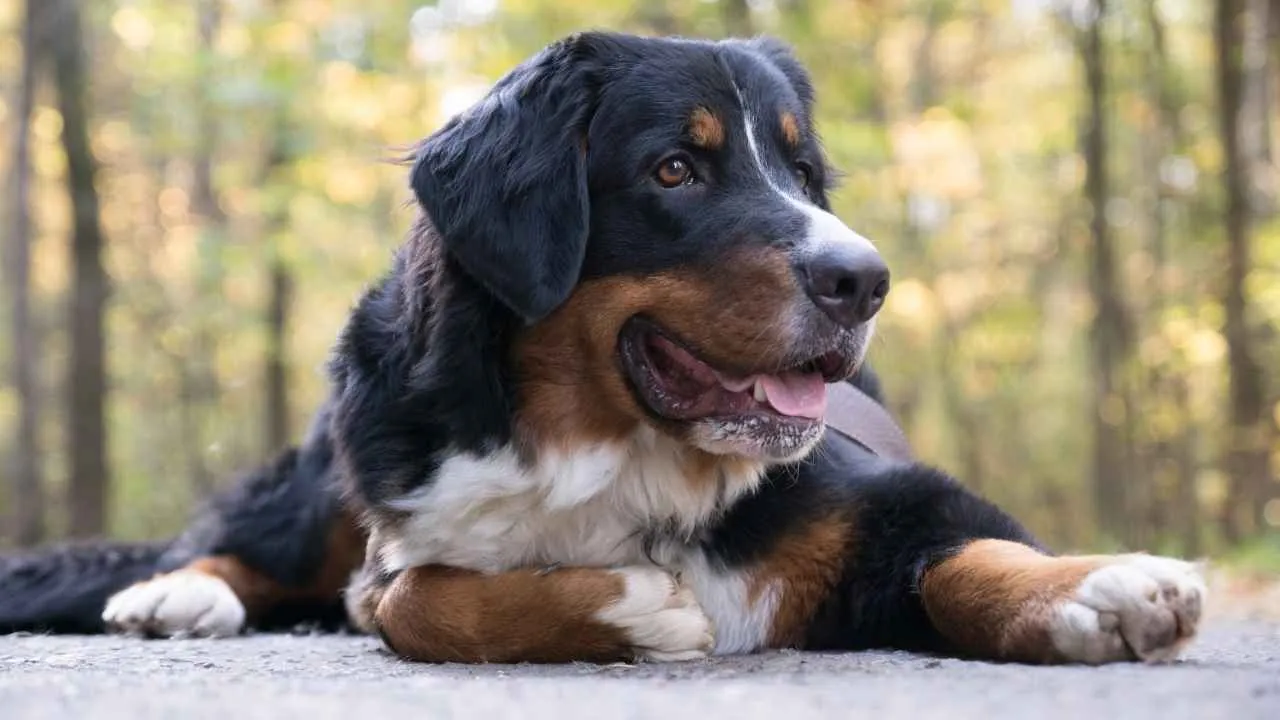
Bernese Mountain Dogs are well known for their calm approach, which makes them highly dependable in service environments. Their patience allows them to work in busy public settings without stress. They form strong emotional connections with handlers, encouraging trust and stability.
Capable Working Strength
Their size and build make them suitable for supporting adults during mobility tasks. These dogs can handle service duties that require physical effort, including pulling wheelchairs. This combination of loyalty, intelligence, and power makes the breed especially valuable to public service organizations.
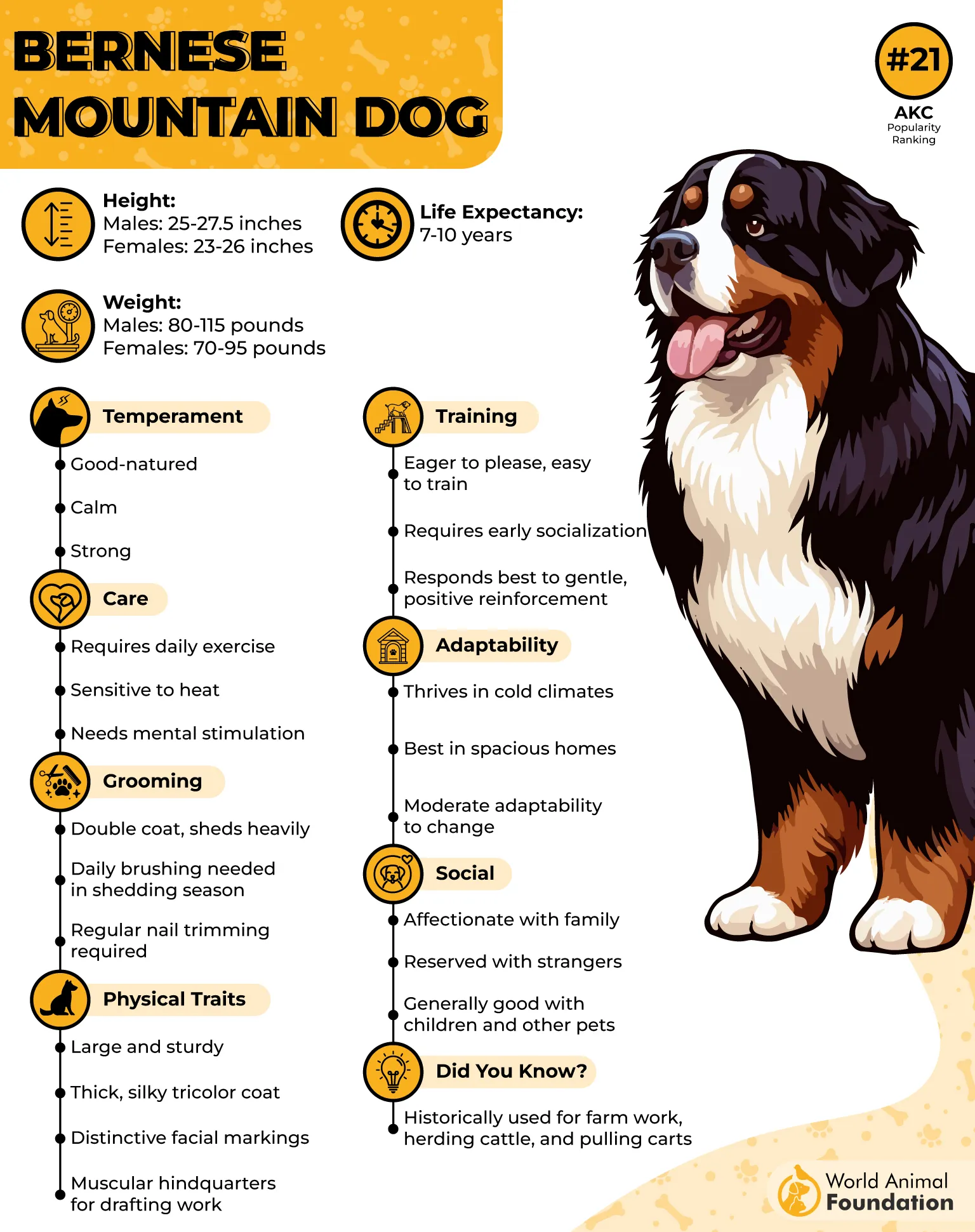
Reliable in Demanding Roles
Handlers often highlight their ability to remain steady even during unpredictable circumstances. A Bernese can balance companionship with functional assistance, adapting quickly to different service needs. Their mix of intelligence and cooperation has kept them in demand across various assistance roles.
Adaptability and Skill Set
They are versatile enough to help with both emotional support and physical tasks. Typical service duties may include:
Guiding individuals with mobility challenges
Carrying or retrieving essential items
Providing calm reassurance during stressful situations
4. Great Dane
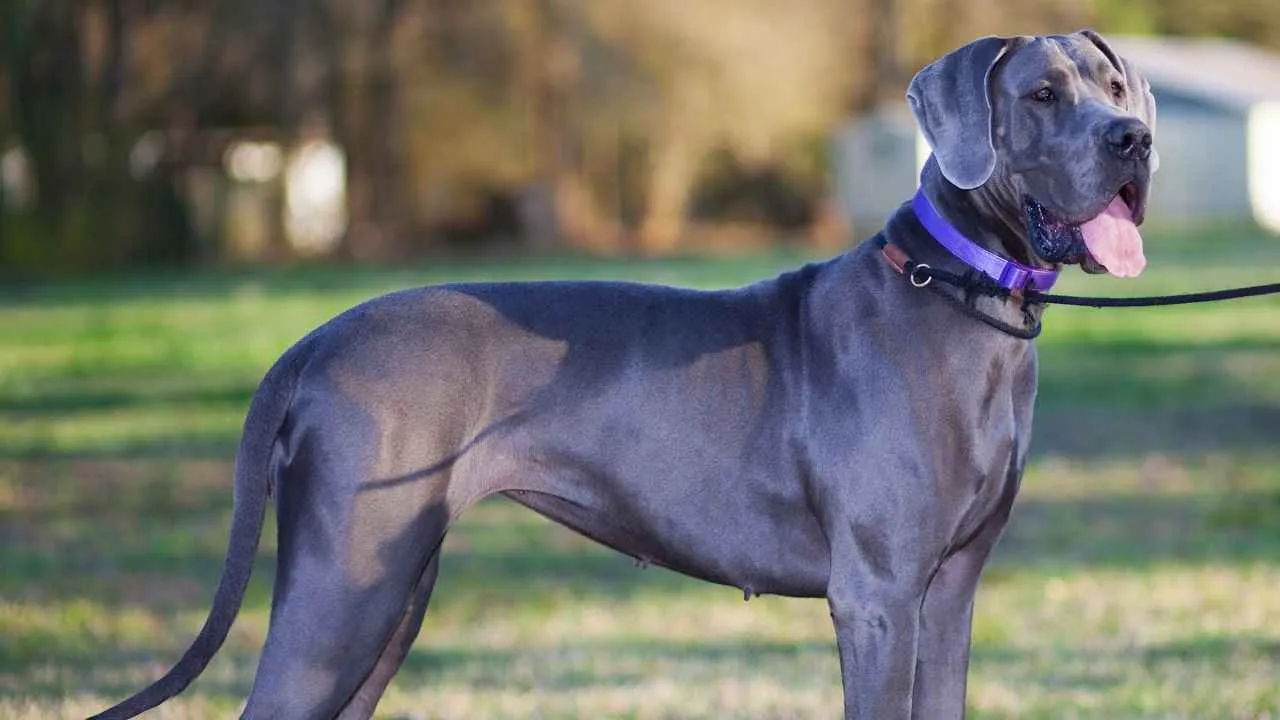
Great Danes bring an unusual balance of size and gentleness, which makes them reliable in busy environments. They tend to remain steady even in loud or crowded public spaces. This calm temperament is a critical asset when working around vulnerable individuals.
Support for Mobility Assistance
Their tall frame and strength provide natural advantages for mobility-impaired handlers. With steady movement, they can offer balance and support when walking. Their patience allows them to move slowly alongside wheelchairs or those needing additional assistance.
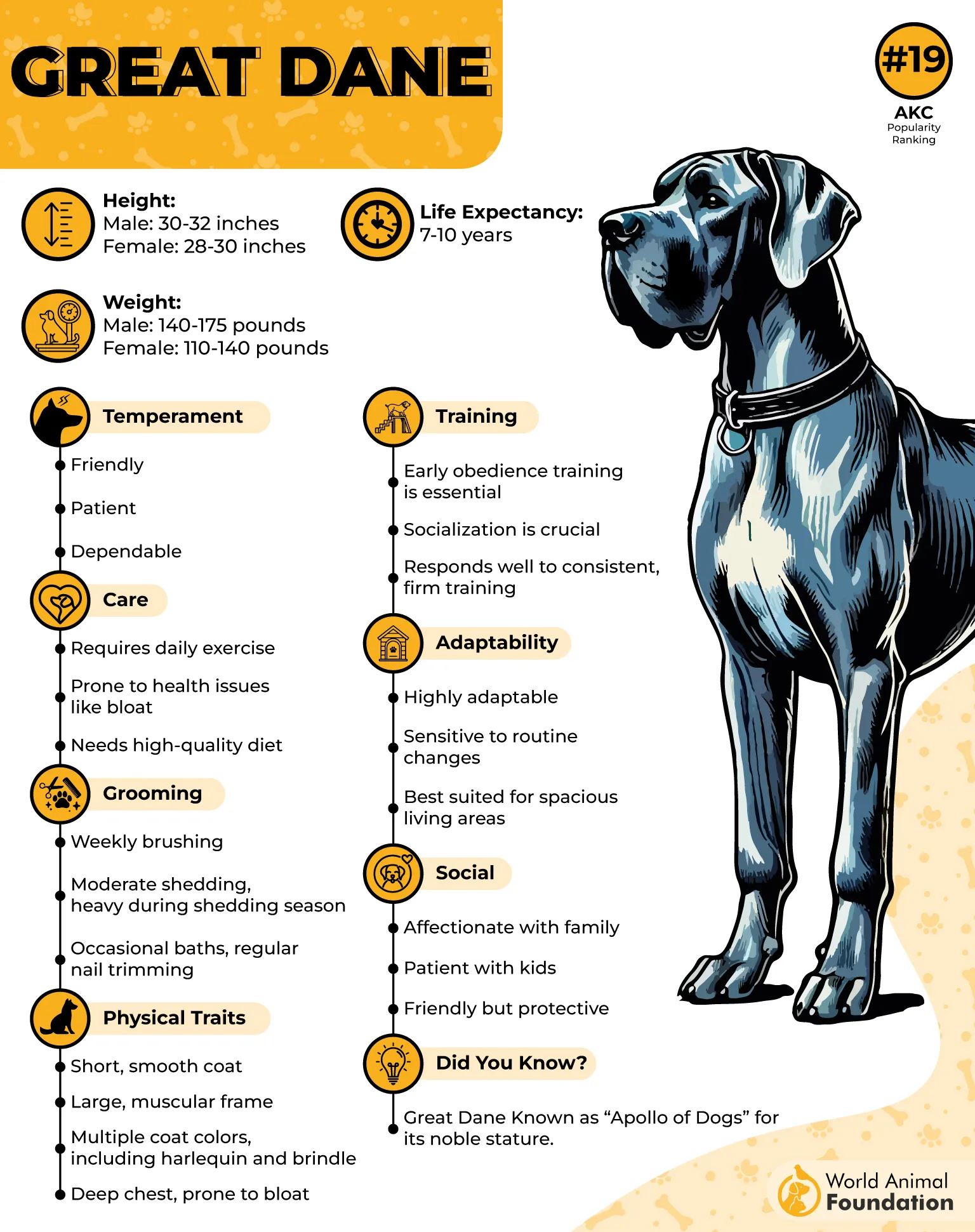
Dependable Companionship
This breed is known for its loyalty and its desire to stay close to people. For public service organizations, that predictability reduces the risk of distraction or wandering. They are
Attentive to voice commands
Comfortable in structured routines
Adaptable to different social settings
Positive Social Presence
Standing at an impressive height, the Great Dane can appear imposing, yet its gentle interaction reassures the people it serves. Their affectionate nature helps build trust quickly, whether working in hospitals, schools, or community outreach programs.
5. Border Collie
Border Collies are known for their ability to learn patterns, remember commands, and react faster than most breeds. This makes them reliable in service roles where quick judgment is just as important as physical skill. They can shift seamlessly between active work and attentive focus.
Drive in Public Service
Their stamina allows them to stay on task for hours, even in unpredictable environments. While they’re natural herding dogs at heart, structured routines help channel that energy productively. With guidance, they can thrive in positions requiring mental endurance and physical responsiveness.
Adaptability in Specialized Roles
According to WebMD, Border Collies have also been considered as guide dogs, but they are often better suited for active assistance tasks. Their athleticism and sharp instincts make them valuable when their skills are directed toward service work such as search and response. Key traits include:
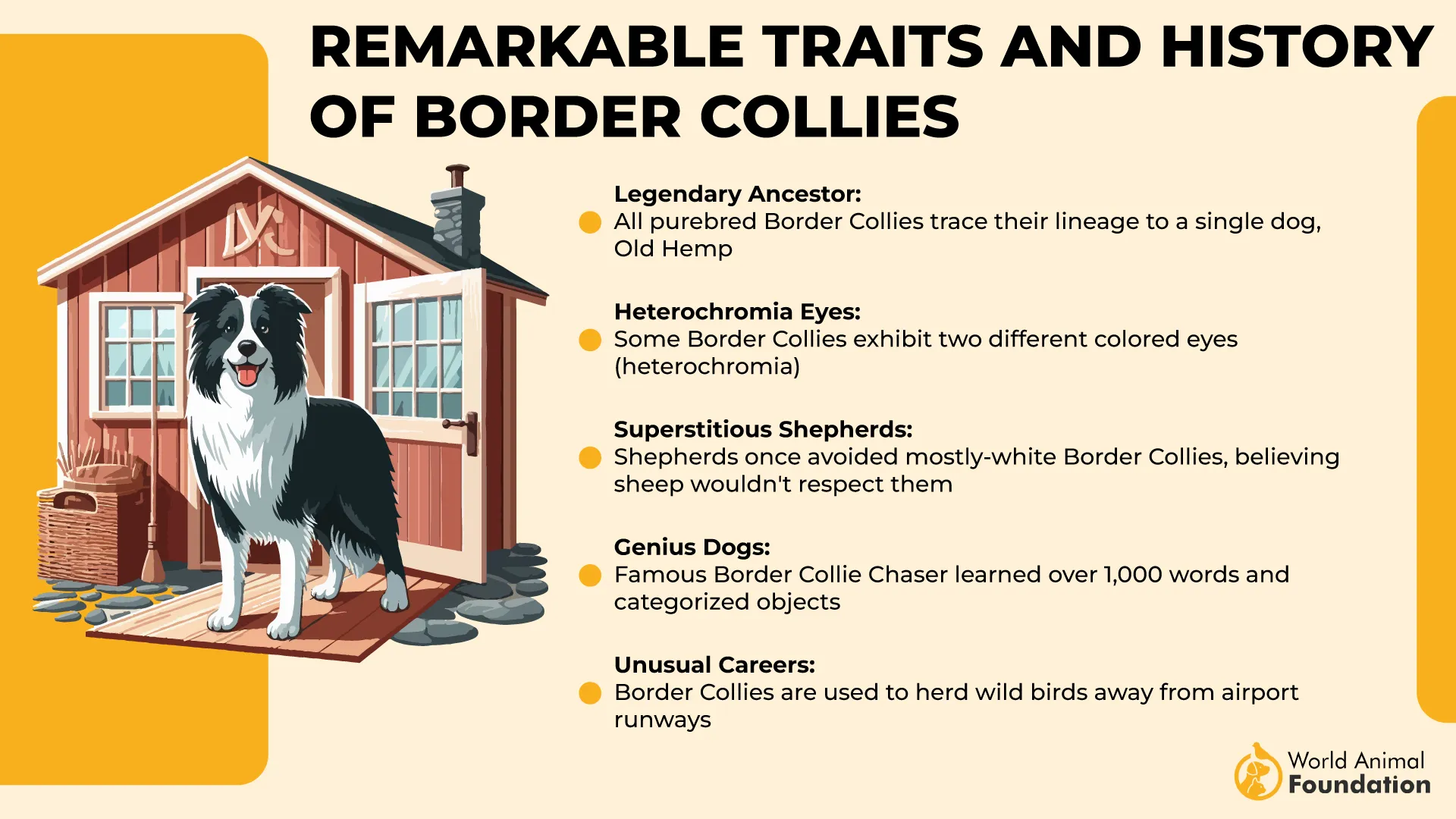
Fast learners with advanced command retention
High physical endurance for outdoor assignments
Strong sensitivity to handler signals
Emotional Connection
This breed bonds deeply with its handler, making it dependable in emotionally demanding service situations. The constant drive to work keeps them engaged, while their awareness of human cues supports both safety and companionship. Their enthusiasm often translates into joyful cooperation.
6. American Staffordshire Terrier
The American Staffordshire Terrier has the build and temperament to thrive in structured work. Its physical strength makes it suitable for mobility support, while its stable personality allows for calm decision-making in busy environments.
Adaptable Companionship
Am Staffs balance courage with affection, showing an eagerness to engage with both people and tasks. Their enthusiasm translates well into roles where positivity and persistence are essential. This mix of grit and joy keeps morale high within service organizations.
Traits That Support Tasks
These terriers bring together a unique set of qualities that fit service needs:
Muscular frame for mobility work
Gentle, people-oriented nature
Brave presence in challenging settings
This combination keeps them effective in both physical and emotional support roles.
Emotional Resilience
Beyond their obvious strength, they remain steady under pressure, handling loud noises and unpredictable environments without withdrawing. Their ability to stay focused while also spreading warmth makes them highly valued in public-facing service work.
7. Pomeranian
The Pomeranian’s lively temperament makes it a natural mood booster in community-focused settings. Britannica mentions that its playful spark often creates a welcoming atmosphere for people under stress. Their presence alone can bring comfort during structured therapy programs.
Medical Alert Abilities
This small breed has proven useful in identifying health-related concerns through scent recognition and behavior cues. They are known for alerting handlers to conditions such as asthma, Parkinson’s disease, and diabetes. These skills make them highly valuable for personal safety monitoring.
Adaptability to Public Service
Their small size allows them to move easily through crowded spaces, making them practical for roles in public service organizations. They adjust quickly to different environments, whether working in an office, school, or healthcare facility. This flexibility supports long-term placement success.
Engagement with People
Pomeranians interact with enthusiasm, often drawing attention in ways that encourage social connection. Their involvement can include:
Acting as conversation starters during therapy visits
Providing companionship to reduce feelings of isolation
Maintaining consistent positivity in high-stress workplaces
Conclusion
Public service organizations thrive when supported by companions that bring joy as well as skill. The happiest dogs rise to the challenge, turning their cheerful nature into reliable support across diverse service dog roles.
From guiding individuals with mobility needs to lifting spirits in classrooms and hospitals, these breeds prove that positivity and purpose can work hand in hand. Psychiatric service dogs, therapy partners, and other emotional support animals demonstrate every day how loyalty and optimism improve lives.
By focusing on popular service dog breeds known for their resilience and enthusiasm, organizations gain partners who truly embody service.


